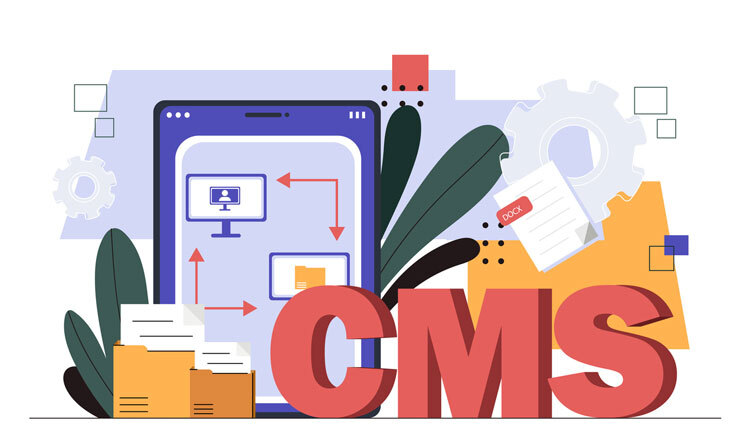CMS is much sought after as it makes life so much easier for people handling websites. CMS is the acronym for Content Management System.
From a school to an online retail store, a CMS comes in handy as content is the lifeline of any website.
You and your team may be planning to update, add and rearrange content according to various plans and upcoming events. In that case, you will need a good CMS in place to help you manage your content efficiently.
Perhaps, you need to add a new video as well as content to your online school magazine.
Well, with a good CMS, your team can do it in minutes without any hassles.
The first benefit of using a CMS is that it allows for awesome flexibility.
Flexibility
A CMS is designed in such a way that it allows for much-needed flexibility for handling content in your website. Without it, your website may seem stuck and perhaps outdated.
You will be able to add fresh content easily and as often as you need to.
You can change themes, background colors, fonts, rearrange photos and videos and make all sorts of updates. With some CMSs, you can use it to manage content without having to depend on people with a strong technical background.
Your company may be maintaining a blog through WordPress. Perhaps, you have a managerial or some other background but hardly any coding knowledge.
Well, that is not a problem.
You can easily post and publish your blog with the title, images and add tags through the neat template via WordPress CMS.

WordPress and other CMS have easy-to-use dashboards for making posts and for taking other content-based actions. You can even check the HTML markup in WordPress if you have basic knowledge of HTML and make relevant changes, even though HTML knowledge is not that necessary.
In order to keep your website updated and manage the plethora of content, a CMS is a must. Since it is easy to use and flexible, you will not have to worry when you need to make a major update across webpages such as a change in the company name if it has gone through a merger-acquisition.
A CMS is in fact so versatile that it can be used easily and efficiently and can be customized for schools, hotels et al.
For some customized and other open-source CMS other than WordPress, basic training and elementary coding knowledge may be required which can be learnt at a comfortable pace or handled by a developer team. Also, some CMSs require more intricate programming knowledge which can be handled by a developer team with ease.
There are many open-source and free CMS platforms like WordPress. The other most popular open-source and free CMS platforms are Joomla, Magento and Drupal.
Joomla allows greater flexibility than WordPress in terms of the amount of content that can be saved and also in making structural adjustments. In fact, Joomla is the most popular for social media or integrating social media features to websites.
WordPress, however, is much more flexible in terms of the number of themes and plugins available. These numerous plugins allow enhanced customization for your website needs.
What about Drupal and Magento?
Drupal is a more complicated CMS and requires more technical understanding and can be well-handled by the programming team of the company.
Drupal allows far greater flexibility in terms of handling of a vast amount of content and also allows far greater flexibility and ease in scaling up. It is used by many colleges as well as government and media websites.
In terms of changing appearance like adding various themes, however, you will find that WordPress is far more flexible.
With Magento, you will find that it is most versatile for running an online or any retail store and managing the CMS.
This is because Magento was acquired by EBay, and so, it allows for more customizations for running a store and for internet marketing.
Makes it Easy to Search for Content
Well, apart from a CMS allowing great flexibility in managing content, you can search for content in your website very efficiently. If you need to index and search for content in your website, it may be a hassle to sift through all the webpages of your website to find relevant content.
For example, if you have a travel website, you may have a lot of details about umpteen dream vacation destinations with videos and images. If you need to retrieve and highlight a particular vacation destination due to favorable seasonal considerations, then you can easily do that through a CMS.
SEO-Friendly

A CMS also makes your website SEO-friendlier. It is not just that you and your team need to be able to search for content easily within your website and also be able to manage all content creation. Making your digital presence felt in the vast ocean, that is the internet, can be a bit overwhelming.
With a CMS, your website is much more Search Engine Optimized.
Drupal and WordPress have excellent SEO plugins that can help you and your team optimize all your content in the best possible manner for a strong online presence.
From title tags, meta descriptions to social media integration, a CMS can help you up your SEO optimization.
For instance, you will be able to track and study trends with regards to how your website or webpages are being shared on social media sites like Facebook, Twitter, etc. Each time, the social media icons, etc., on your webpage is clicked, it can be tracked through the SEO provision in your CMS.
In fact, if you have been using Google Analytics for checking SEO data, then you can get it integrated and check data about your website within your website’s Drupal-enhanced CMS itself.
Allows numerous users at any time
A CMS can be accessed by numerous users, and various updates and much more can be done simultaneously.
Perhaps, your friend belongs to an editorial team of a media agency. The entire team can update content on several of its webpages and upload videos, images, podcasts and content-rich pages with efficiency. A vast amount of content can go live almost at the same time or neck to neck.
Responsive
A CMS is responsive, i.e., it can be accessed on any device; desktop, laptop or your smartphone.
So, from a medico to a journalist, a CMS becomes an enabler to update or manage content efficiently on-the-go and anywhere.
Call Adroitte
Contact us to discuss your NGO related website design requirement. Call us today on +917760487777 or 08041127377 or message us on our contact form and we will reply back ASAP. We can discuss how we can strategically implement NGO website design successfully for your organization.




